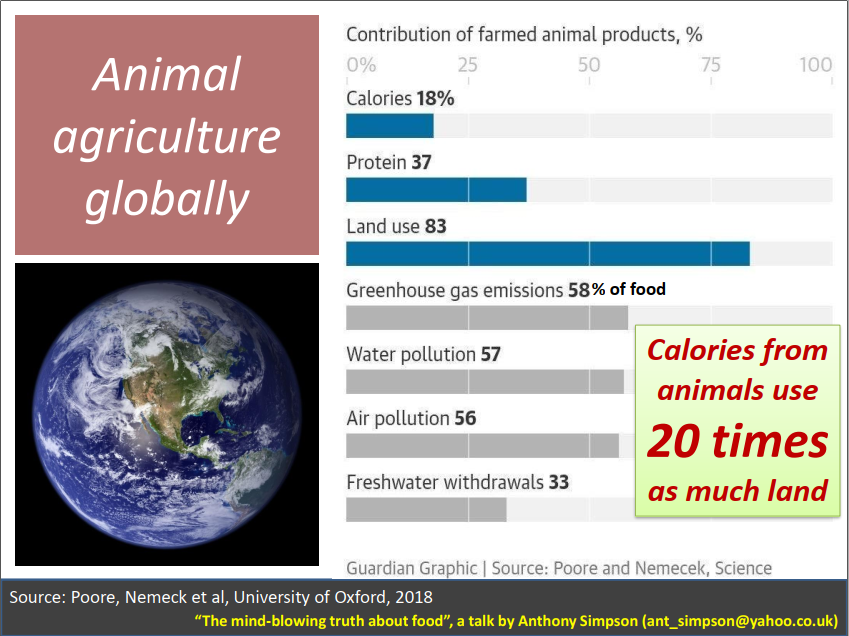Food is responsible for 26% of all greenhouse gas emissions, of which 58% are from animal produce alone (Poore and Nemecek, 2018).
In Europe, animal produce is responsible for 83% of CO2e emissions from food (Sandstrom et al, 2018)
Animal agriculture worldwide:
-
Takes up 83% of agricultural land
-
Provides just 18% of calories
-
Is responsible for 58% for food CO2e emissions
-
Supplies just 37% of protein
-
Takes 33% of freshwater
Find out more about low impact plant-based diets from the qualified UK medical experts: Plant Based Health Professionals Fact Sheets
Plant-based diets
“For a typical average consumer, diet change isn’t just the single biggest way to reduce your greenhouse gas emissions, land-use, your impact on biodiversity, the nitrogen phosphorus pollution caused by your food, the acid rain, the water use, but probably the pesticide & anti-biotic use that is being caused by the food system”
(Dr Poore, University of Oxford, 2018)
Plant-based diets have a significantly lower carbon footprint, a significantly lower land footprint providing opportunities for rewilding, which both reduces carbon even further and provides much needed habitats for dwindling wildlife populations. Plant based diets also use considerably less water, and is better for soil.
